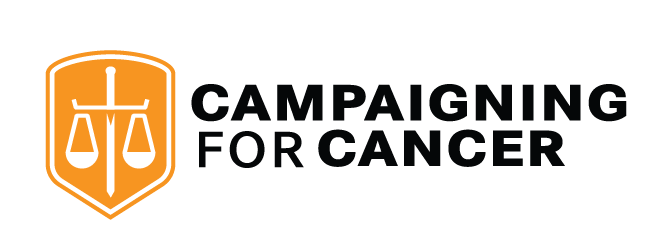
28 April 2020 –
Can we carve out a space for patients with diseases like cancer?
Is the appearance of COVID-19 on the scene a David Copperfield trick which has magically ‘disappeared’ the other diseases we worried about before it arrived? Of course not!
It’s natural that we should all be overwhelmed by the uncertainty and fear that surrounds this pandemic. Most of us are on an emotional rollercoaster daily, as we watch the figures rise and read the flood of news, some solid, so much definitely false, that pours into our What’s App groups and newsfeeds daily.
That fear and uncertainty is doubled, tripled, or even quadrupled, for people battling potentially deadly diseases that require regular and lifesaving treatment, lockdown or no lockdown; diseases like kidney failure, autoimmune disease such as lupus, and the different kinds of cancer.
“Remember, there are still people like me who need ongoing treatment,” says one man, who needs outpatient therapy for prostate cancer. It’s essential that people continue their treatment, such as chemotherapy or radiation, for cancers and other diseases during this tough time. For some, it is indeed a matter of life and death.
In South Africa, about 115,000 people are diagnosed with cancer every year. (Just for the sake of comparison, in 2018 1,170 people sustained injuries in major crashes on our roads, and over 82,000 people die of heart disease in this country annually. So 115,000 is not a small number in anyone’s book.)
South African women have a one in eight chance of getting cancer; for South African men, the figure is one in seven. Breast, cervical, colorectal and uterine cancer top the list for women; it’s prostate, colorectal, lung and Kaposi sarcoma for men.
But cancer is no longer necessarily a fatal disease: six out of ten people diagnosed will survive their cancer – if they get the treatment they need.
Can they?
Even before COVID-19 (do you think one day we’ll see the acronym ‘BC’ as meaning ‘Before Covid’?) cancer patients were on something of a knife-edge already. In the state sector, oncologists, equipment and drugs were and remain in short supply (in Gauteng, our most populous province with nearly 15 million people, we only have two state hospitals that treat cancer, Charlotte Mxkenge in Johannesburg and Steve Biko in Tshwane).
“The public service cares for about 85% of the health needs of the population but only retains approximately 15% of the oncology specialists in the country. A similar situation exists in radiology and pathology, and significant inequities in surgery and nursing also exist,” wrote Professor Jeannette Parkes, head of radiation oncology at Groote Schuur and Professor Lydia Cairncross from the Department of Surgery at Groote Schuur in the Daily Maverick last year.
Now, in lockdown, cancer patients are required to get a permit from their oncology centre, public or private, to continue their treatment, if treatment cannot be safely delayed till later in the year. And for many, treatment simply cannot be put off, not without deadly consequences.
But that raises questions.
Firstly, about the risk of infection: we know that cancer patients are more likely to have a worse experience with COVID-19: “…all types of cancers seem to be associated with high COVID-19 prevalence, morbidity and mortality…”, as a 10 April article notes in Oncology News. But continuing treatment could expose them to further risk of infection: using public transport, waiting in queues, risking contact with other patients.
And secondly, about reliable ongoing treatment. Pandemics disrupt healthcare services in a range of ways:
In this COVID-19 outbreak, the major risk for patients with cancer is the inability to receive necessary medical services (both in terms of getting to hospital and provision of normal medical care once there) because of the outbreak. Some clinical trials are being delayed; and when severe complications or emergencies occur in patients with advanced cancers, treatment delays or unavailability are possible concerns.
(Hanping Wang, Li Zhang Department of Respiratory Medicine, Peking Union Medical College Hospital, in a letter to The Lancet, 3 March 2020)
These medical academics point out that, at the peak of the epidemic, medical staff may be moved around to cope with the surge in cases (as happened in China), so they’re simply not there to treat non-COVID-19 patients. They are also likely to fall ill themselves, reducing the number of medical professionals at work – in Lombardy, the epicentre of the Italian crisis, 10% of medical staff developed infections. This may mean the human and other resources just aren’t there to assist people with needs for ongoing treatment.
If our healthcare services cannot maintain continuity of care for patients with these conditions, there’ll be a knock-on effect which we’ll only be able to see clearly once the pandemic subsides: tumour progression, greater suffering, poorer outcomes and a higher death rate, and probably, as a result, greater costs to both public and private health services.
In this time of lockdown, this tiny breathing space we have before – possibly – the virus ramps up its impact on South Africa, we need to think creatively about how risk can be managed and continuity of treatment can be maintained for the patients who have not simply “gone away”. It’s a challenge – but often, such challenges drive us to create new norms which improve healthcare.
For press-related enquiries, please contact:
Adia Kabengele
Programmes: Communications
Email | adia@campaign4cancer.co.za

